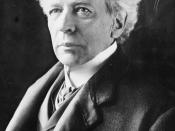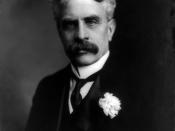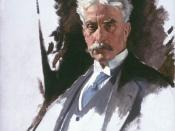Conscription in Canada Conscription made a significant change in the relationship between English Canadians and French Canadians. Their perspective and beliefs with this issue were in complete contrast. Because of conscription, French Canadians felt betrayed and disrespected. Conscription caused disagreements, as well as, violent disputes. Also, it proved to be ineffective.
Sir Robert Laird Borden, the Prime Minister of Canada between 1911-1920, was a conservative. During this time, World War I was taking place and Canadians soldiers fought. In 1917, there was only a hand-full of Canadian soldiers. Enlistment was decreasing and Canadian soldiers were being killed one after another. Wounded Canadian soldiers in convalescent hospitals were patched up and rushed back at the front, because there simply were not enough reinforcements. In order to fulfill its commitments at the front, Canada needed about 100,000 additional troops. Seeing this, Borden made a decision "ÃÂ conscription.
English Canadians agreed with this decision, but French Canadians were strongly against it.
The English Canadians felt that they should be out there and fight, yet the French Canadians felt that they should stay away from foreign affairs and have a choice whether or not to enlist. Sir Wilfrid Laurier, a Liberal and the former Prime Minister, strongly opposed. He knew that conscription would tear Canada apart. However, Borden kept his word.
Reactions came with a blow. Anti-conscription riots broke out in Montreal, and unions threatened to strike. On August, 1917 the Military Service Act passed. All men between ages 19 and 45 had to enlist. Borden's government passed the Wartime Elections Act during that same year and won. Borden had great support in Ontario, British Columbia, and the Maritimes. However, almost all Quebec seats went to Liberals due to anti-conscription. The result of this election certainly did not please the French Canadians. As...


